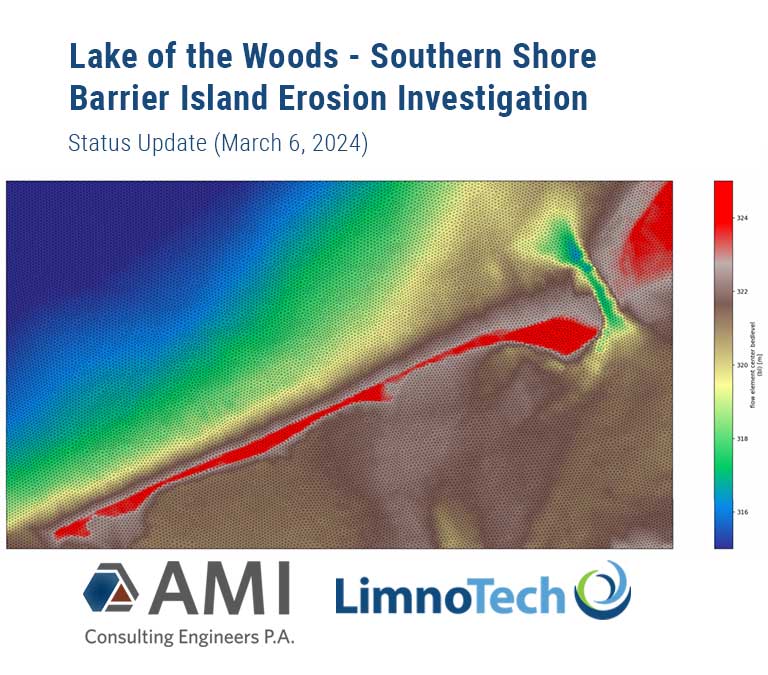
Craig Taylor Presents at the 2024 Rainy-Lake of the Woods Watershed Forum
April 9, 2024
Craig Taylor, a Civil Engineer and a Hydraulics and River Rehabilitation Specialist at LimnoTech participated in the 21st Annual International Rainy-Lake of the Woods Watershed 2024 Forum, March 6-7, at Minnesota North College – Rainy River campus, International Falls, MN. Since 2004, the Lake of the Woods Water Sustainability Foundation has led a partnership of agencies to organize the forum. Organizers and sponsors for this year’s forum include the International Joint Commission, Minnesota Pollution Control Agency, Environment and Climate Change Canada, Minnesota North College – Rainy River Campus, Territorial Planning Unit – Grand Council Treaty #3, and Voyageurs National Park.
The forum brings together research and resource managers, policymakers, and the public interested in the Rainy-Lake of the Woods Watershed to share cross-border research learnings, collaborate on management, and facilitate partnerships. The forum’s key themes included climate change, nutrients and algae, paleolimnology, aquatic invasive species, sediment studies, hydrology, fisheries, emerging technologies, and more.
Craig and Zac Morris of AMI Consulting Engineers co-presented on a “Lake of the Woods Southern Shore Barrier Island Erosion Investigation: Status Report.”
The presentation provided an overview of the geomorphology of the Pine and Curry, and Sable Islands located in the Lake of the Woods. These barrier islands have degraded over the last century, and there is significant community interest in determining the cause(s) of the erosion and providing options for ways to restore the islands. The presentation focused on the development of a lake-wide circulation model, which is a key initial step in understanding lake sedimentation processes and erosion of the islands. This project is currently in progress and is planned for completion by September 2024.
Craig shared that an early takeaway from this study is that these islands function as true barrier islands, which depend on a delicate balance of sediment transported to, along, and away from the islands. The forum attendees have taken great interest in the challenges faced by the islands and have volunteered supporting resources in the form of historical maps, advanced copies of book publications about the lake, and results from previous modeling exercises. You can view the full presentation here.
If you have questions or want more information, you can reach out to Craig Taylor at ctaylor@limno.com.
You can also check out LimnoTech’s work in Urban Revitalization and Green Design, Water Resource Investigation and Management, Waterway & Ecosystem Restoration, and Climate Adaptation and Resiliency.




